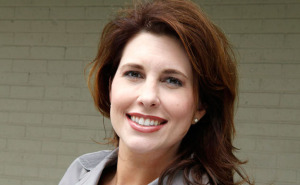Like millions around the world, we were saddened this summer by the sudden passing of Robin Williams, a true original. We were particularly moved by his words, “No matter what people tell you, words and ideas can change the world.” At Social Impact Architects, we strive to understand and help define the transformative process that must occur in order for this to happen in the social sector.
Transformative social change is the new standard for the social sector, and impact is the new bottom line. But, what does this mean and how do we get there? These questions have been circulating around our office for the past year, and this summer we set out to answer them. Transformative social change always starts with a problem needing to be solved. The social sector’s responsibility is to take that problem, transform it into an idea and then an impactful solution, which can be scaled to create change. But, how can we get better at creating this “social alchemy”?
Here are some of our initial thoughts on the four stages of turning a problem into social gold:
Innovate
In the first stage we are scientists, uncovering the problem and developing hypotheses. Rather than jumping to a solution, we believe design thinking is a more effective approach. Design thinking combines empathy for the problem, creativity for solutions and rationality for the best fit. In his TEDTalk, Tim Brown, CEO of IDEO – one of the leading companies in design thinking – posits that design thinking can and should be used to tackle new and bigger problems, such as global warming, healthcare, education, etc. To innovate, we must first understand the problem from all the angles, including why it exists and why it persists. We cannot jump to the idea until all the research is done and we have brainstormed all the possible ideas.
Improve
In the second stage, we are engineers, measuring and testing the idea for its impact. If the idea has merit, it will move through a virtuous cycle of continuous improvement – BUILD -> MEASURE -> LEARN – until impact has been proven through extensive evaluation. If the idea is problematic, it may need to go back to the Innovate stage to be re-developed. This is not seen as failure, but instead as a rapid prototyping process where ideas are tested quickly and are allowed to fail early and cheaply. In the social sector, we also call this stage the “Lean Start-Up,” which can be a valuable way to design a program where impact has already been proven and can be customized for a local context.
Impact & Scale
In the third and fourth stages, we have proven impact and now need to take the idea to scale. We are franchise owners, focused on replicating THE idea in a number of different environments. In the social sector, THE idea – often a program or organization – has many layers and the element(s) that are most impactful are difficult to unravel. The first step is to develop a list of elements that are core to the impactful idea and that are non-essential to impact, and test their success separately. As we continue to think about social alchemy, it begs more questions of us and the social sector as a whole. For example, we love to innovate, but how good are we at taking it to impact and scale? We need to scale, but are we starting with well-designed ideas? What processes and supports need to be in place to assist with this transformation?
Here is some food for thought on the topic by one of our favorite authors, Paulo Coelho, who wrote in The Alchemist: “This is why alchemy exists….So that everyone will search for his treasure, find it, and then want to be better than he was in his former life. … That’s what alchemists do. They show that, when we strive to become better than we are, everything around us becomes better too.”
We must strive to become better at transforming problems into ideas that will change the world.
Suzanne Smith is a serial social entrepreneur and bridges many disciplines as a coach and consultant to social sector organizations as Founder and Managing Director of Social Impact Architects and Co-Founder of Flywheel: Social Enterprise Hub. She also educates future social entrepreneurs as a frequent guest lecturer at campuses across the country and as Adjunct Professor at the University of North Texas and Research Fellow at the Center for the Advancement of Social Entrepreneurship at Duke University. She is also a leading author, blogger (@socialtrendspot), and top-rated speaker.


